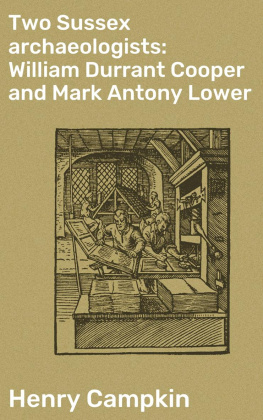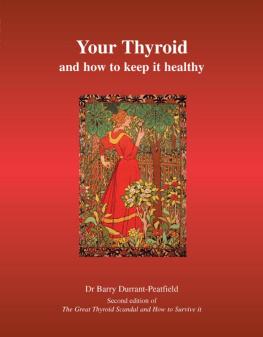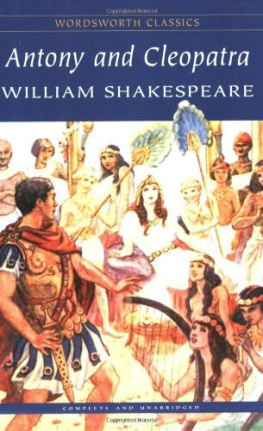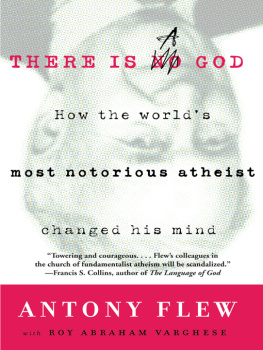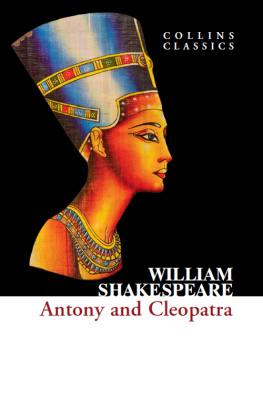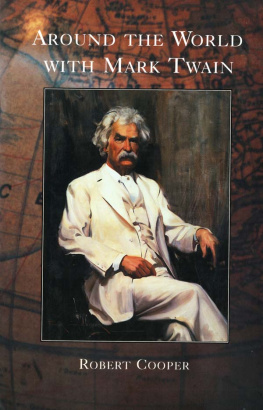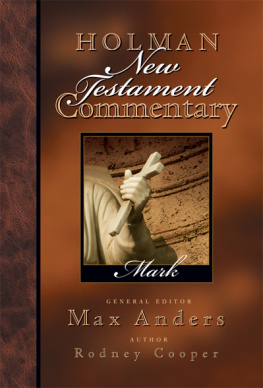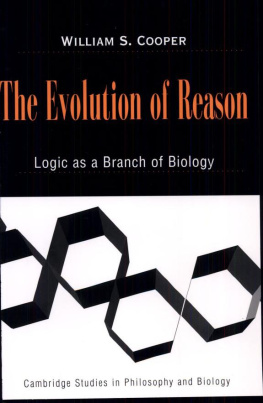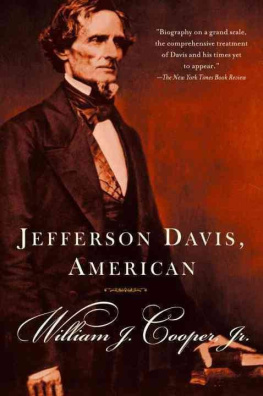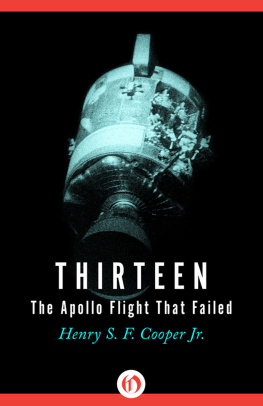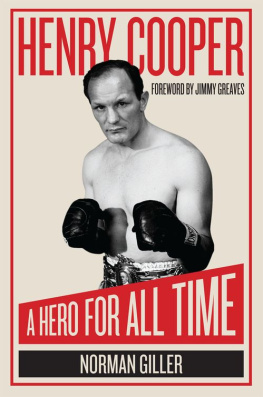Henry Campkin - Two Sussex archaeologists: William Durrant Cooper and Mark Antony Lower
Here you can read online Henry Campkin - Two Sussex archaeologists: William Durrant Cooper and Mark Antony Lower full text of the book (entire story) in english for free. Download pdf and epub, get meaning, cover and reviews about this ebook. year: 2017, publisher: hansebooks, genre: Detective and thriller. Description of the work, (preface) as well as reviews are available. Best literature library LitArk.com created for fans of good reading and offers a wide selection of genres:
Romance novel
Science fiction
Adventure
Detective
Science
History
Home and family
Prose
Art
Politics
Computer
Non-fiction
Religion
Business
Children
Humor
Choose a favorite category and find really read worthwhile books. Enjoy immersion in the world of imagination, feel the emotions of the characters or learn something new for yourself, make an fascinating discovery.
- Book:Two Sussex archaeologists: William Durrant Cooper and Mark Antony Lower
- Author:
- Publisher:hansebooks
- Genre:
- Year:2017
- Rating:3 / 5
- Favourites:Add to favourites
- Your mark:
- 60
- 1
- 2
- 3
- 4
- 5
Two Sussex archaeologists: William Durrant Cooper and Mark Antony Lower: summary, description and annotation
We offer to read an annotation, description, summary or preface (depends on what the author of the book "Two Sussex archaeologists: William Durrant Cooper and Mark Antony Lower" wrote himself). If you haven't found the necessary information about the book — write in the comments, we will try to find it.
Henry Campkin: author's other books
Who wrote Two Sussex archaeologists: William Durrant Cooper and Mark Antony Lower? Find out the surname, the name of the author of the book and a list of all author's works by series.
Two Sussex archaeologists: William Durrant Cooper and Mark Antony Lower — read online for free the complete book (whole text) full work
Below is the text of the book, divided by pages. System saving the place of the last page read, allows you to conveniently read the book "Two Sussex archaeologists: William Durrant Cooper and Mark Antony Lower" online for free, without having to search again every time where you left off. Put a bookmark, and you can go to the page where you finished reading at any time.
Font size:
Interval:
Bookmark:

PRINTED BY GEO. P. BACON.
BY HENRY CAMPKIN, F.S.A.
Within the brief space of a quarter of a year the Sussex Archological Society has sustained a heavy loss in the death of two of its earliest, ablest, and most hard-working members. William Durrant Cooper died at his residence, 81, Guildford Street, Russell Square, London, on the 28th December, 1875; his old and intimate friend and fellow-labourer in the field of local and extra-local Archology, Mark Antony Lower , followed him to the grave in the ensuing March, 1876, dying on the 22nd of that month; and the remains of both are laid among their kindred, in two quiet churchyards in the ancient Sussex county town, where one of them spent so many of his early years, and the other, migrating from his native village, spent the prime of his life.
Who pens a stanza, when he should engross,"
Font size:
Interval:
Bookmark:
Similar books «Two Sussex archaeologists: William Durrant Cooper and Mark Antony Lower»
Look at similar books to Two Sussex archaeologists: William Durrant Cooper and Mark Antony Lower. We have selected literature similar in name and meaning in the hope of providing readers with more options to find new, interesting, not yet read works.
Discussion, reviews of the book Two Sussex archaeologists: William Durrant Cooper and Mark Antony Lower and just readers' own opinions. Leave your comments, write what you think about the work, its meaning or the main characters. Specify what exactly you liked and what you didn't like, and why you think so.

